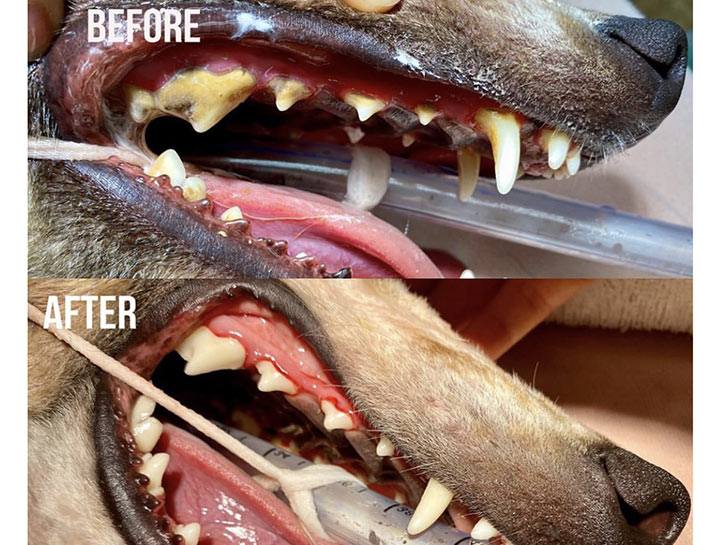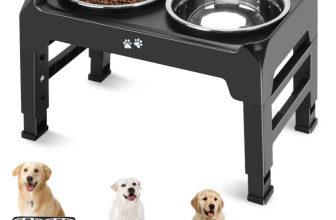Dog Dental Care: Tips for a Healthy Canine Smile

Your dog’s smile is as important as yours. Just like humans, dogs need proper dental care to stay healthy.
Poor dental hygiene can lead to serious health issues, affecting not just their mouth but their entire body. Imagine your furry friend suffering from pain or infection because of something you could easily prevent. You’ll discover simple tips and tricks to keep your dog’s teeth clean and healthy.
You’ll learn about the signs of dental problems and how to establish a routine that makes dental care a breeze. Don’t wait until it’s too late; your dog’s health is in your hands. Let’s dive into the essentials of dog dental care and ensure your pup’s smile stays bright and pain-free!
Importance Of Dental Health
Dental health is very important for dogs. Healthy teeth keep your dog happy and active. Poor dental care can lead to serious problems. Bad breath often means dental issues.
Regular brushing helps prevent plaque and tartar build-up. Tartar can cause gum disease. Gum disease can lead to tooth loss.
Check your dog’s teeth often. Look for redness or swelling. These signs mean your dog may need help.
Providing dental treats can also help. These treats clean teeth while your dog chews. Always choose treats that are safe and approved.

Bad breath is a common sign of dental problems. It can mean bacteria are growing in the mouth. This can hurt your dog’s health.
Discolored teeth can also show dental issues. Teeth that are yellow or brown need attention. Healthy teeth should be white.
Bleeding gums are a serious sign. This means your dog might have gum disease. Swollen or red gums are also bad signs.
Difficulty eating can mean pain. If your dog struggles with food, check their teeth. Painful teeth can lead to weight loss.
Daily Oral Hygiene
Brushing your dog’s teeth is very important. It helps keep their mouth healthy. Use a soft toothbrush made for dogs. Regular brushing removes plaque and tartar. Aim for brushing at least a few times a week.
Choosing the right toothpaste is key. Never use human toothpaste. It can harm your dog. Look for dog-friendly toothpaste. They come in flavors that dogs love.
Using finger brushes can be easier. They fit on your finger and feel soft. This method gives you more control. Gently rub the brush on your dog’s teeth and gums. Make this a fun experience for your dog.

Dental-friendly Diet
A dental-friendly diet is important for your dog’s health. Crunchy foods help clean teeth. Options include dry kibble and raw vegetables. Carrots and apples are great choices.
Dental chews and treats are also helpful. They come in many flavors. Look for ones with the Veterinary Oral Health Council (VOHC) seal. This means they are effective.
Some foods can harm your dog’s teeth. Avoid sticky treats and sugary snacks. These can lead to plaque and tartar. Always choose healthy options for your furry friend.
Regular Vet Checkups
Regular vet checkups are important for your dog’s health. These visits help catch problems early. Professional dental cleaning is a key part of this care.
Most vets recommend a cleaning once a year. Some dogs may need it more often. Older dogs or those with dental issues may require special care.
During an exam, the vet checks your dog’s teeth and gums. They look for signs of gum disease or tooth decay. The vet may also suggest a dental cleaning if needed.
Expect your vet to explain the cleaning process. They will tell you how to care for your dog’s teeth at home. Keeping teeth clean helps your dog stay healthy and happy.
Home Remedies For Clean Teeth
Coconut oil is great for dogs’ teeth. It helps remove plaque. Use it as a rinse. Let your dog swish it around. This will make their mouth clean.
Natural chewing alternatives are fun for dogs. Chewing sticks, carrots, or apples can help. These items clean teeth while your dog enjoys them.
DIY dental sprays are easy to make. Mix water with a little baking soda. Spray it on your dog’s teeth. This can help freshen their breath.
Preventing Dental Issues
Choosing the right toys helps keep your dog’s teeth healthy. Chew toys made of rubber or nylon can clean teeth. They can also help reduce plaque buildup. Look for toys with different textures. This keeps your dog interested and engaged.
Watch your dog’s chewing habits closely. If your dog chews too hard, it can hurt their teeth. Signs of dental problems can include bad breath and swollen gums. Regularly checking their mouth helps catch issues early.
Early detection is key. Look for changes in eating habits. If your dog avoids food, it might be a dental issue. Regular vet check-ups are important for spotting problems early.

Frequently Asked Questions
What Is The Best Way To Clean My Dog’s Teeth?
The best way to clean your dog’s teeth is by brushing regularly with a dog-specific toothpaste. Use a soft toothbrush designed for pets. Additionally, dental chews and toys can help remove plaque and tartar. Regular veterinary dental check-ups are also essential for maintaining your dog’s oral health.
How Often Should I Brush My Dog’s Teeth?
Ideally, you should brush your dog’s teeth daily. However, brushing at least two to three times a week can still be beneficial. Consistency is key to preventing dental issues. Establish a routine that works for you and your dog, making it a positive experience for both.
Are Dental Treats Effective For Dog Dental Care?
Yes, dental treats can be effective for maintaining your dog’s dental health. They help reduce plaque and tartar buildup while freshening breath. Choose treats approved by veterinary dental associations for maximum effectiveness. However, they should complement regular brushing, not replace it, for optimal oral hygiene.
What Are Signs Of Dental Problems In Dogs?
Signs of dental problems in dogs include bad breath, swollen gums, and difficulty eating. You might also notice excessive drooling or loose teeth. If your dog shows any of these symptoms, consult your veterinarian promptly. Early detection can prevent more serious health issues related to dental care.
Conclusion
Taking care of your dog’s teeth is important. Regular brushing helps keep their breath fresh. Dental chews can also help reduce plaque. Schedule regular vet visits for check-ups. A healthy mouth means a happy dog. Show your furry friend you care through good dental habits.
Simple steps make a big difference. Start today for a healthier, happier pet. Your dog deserves the best care possible.







